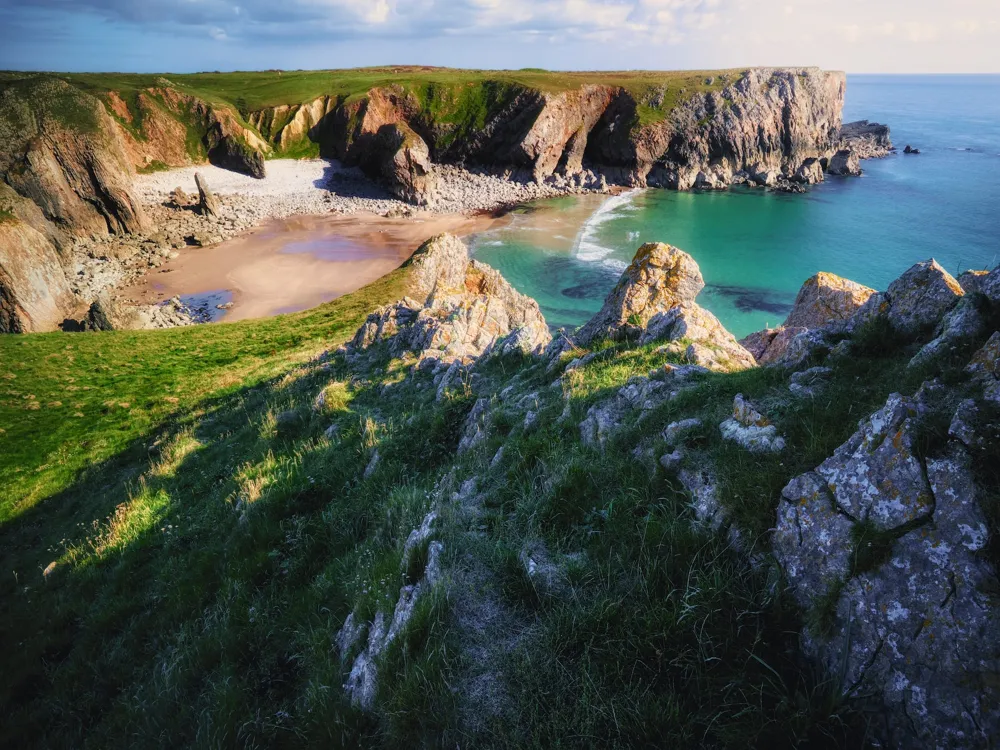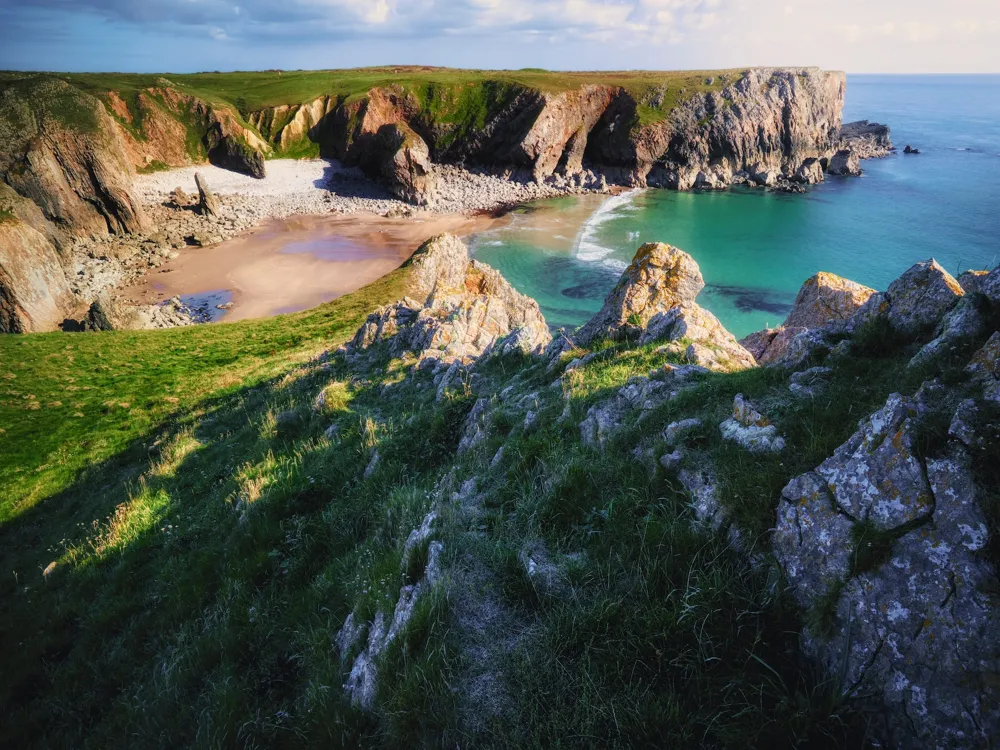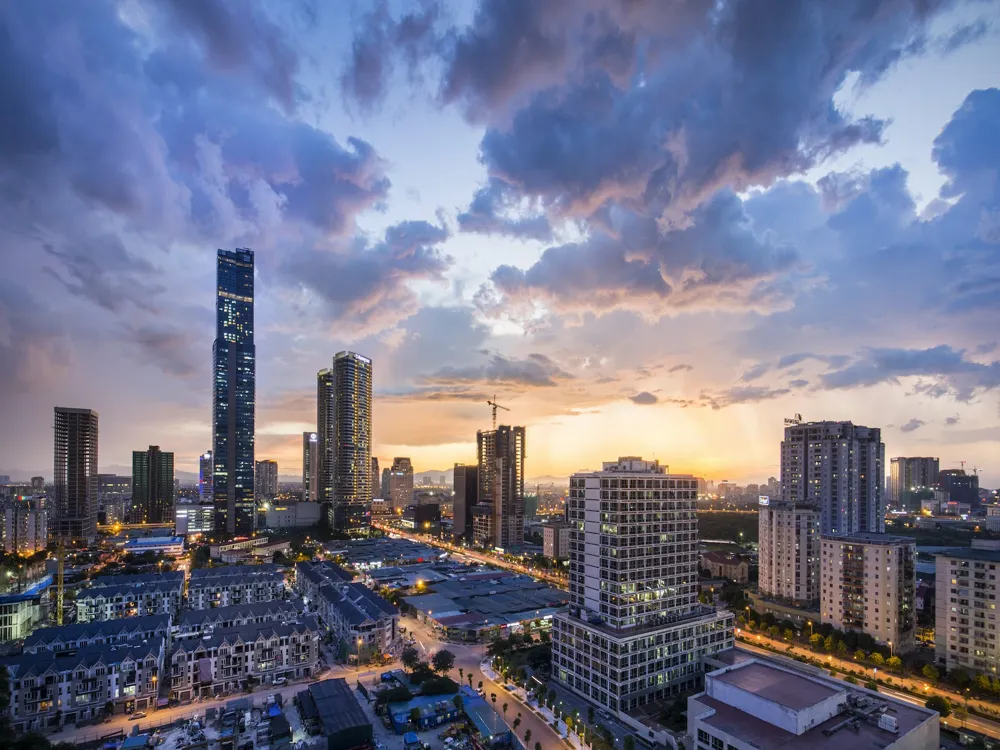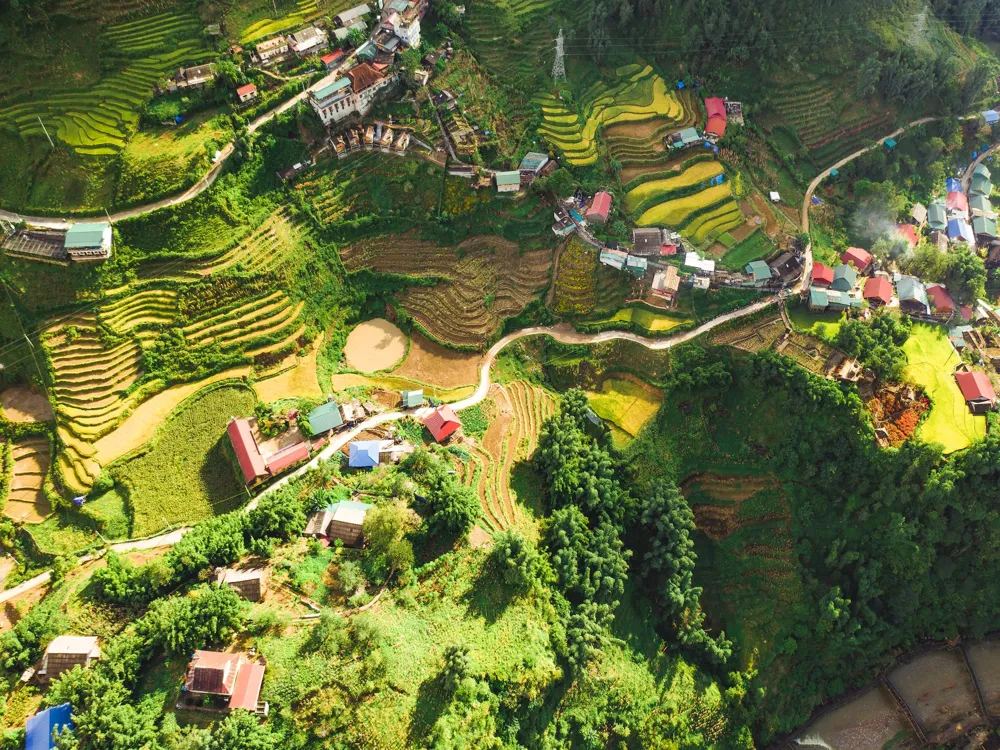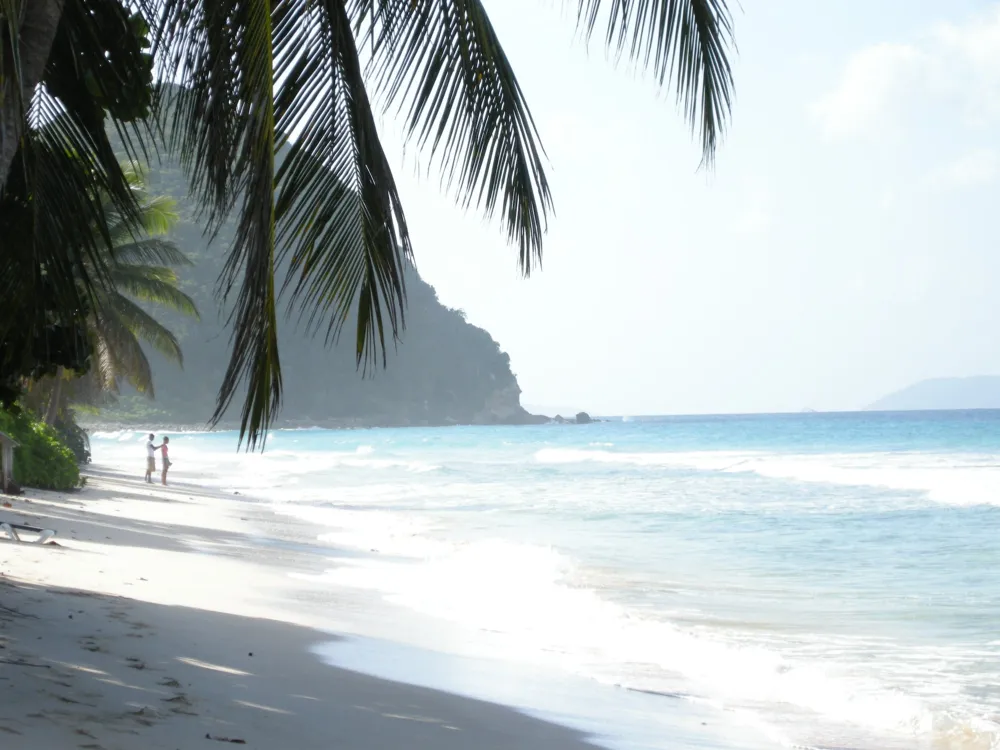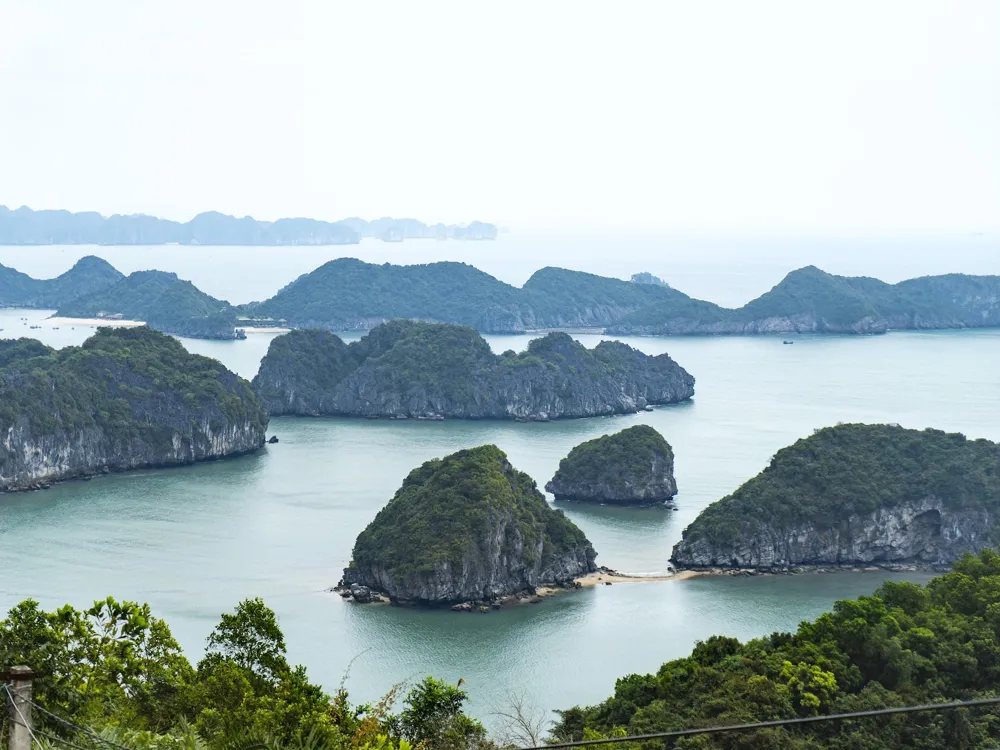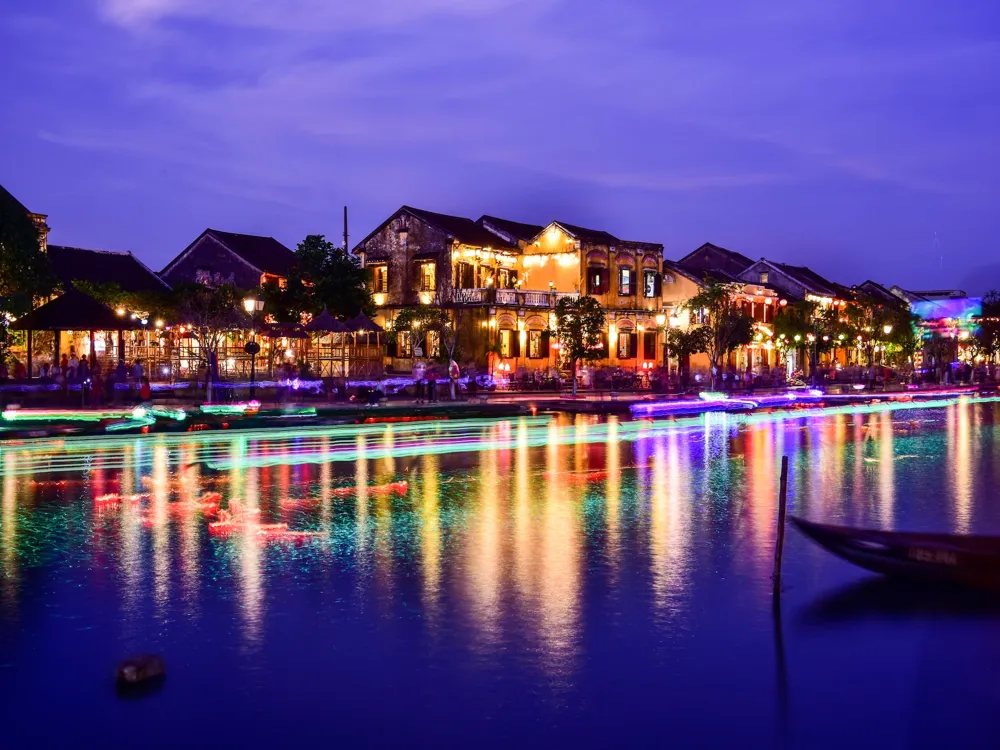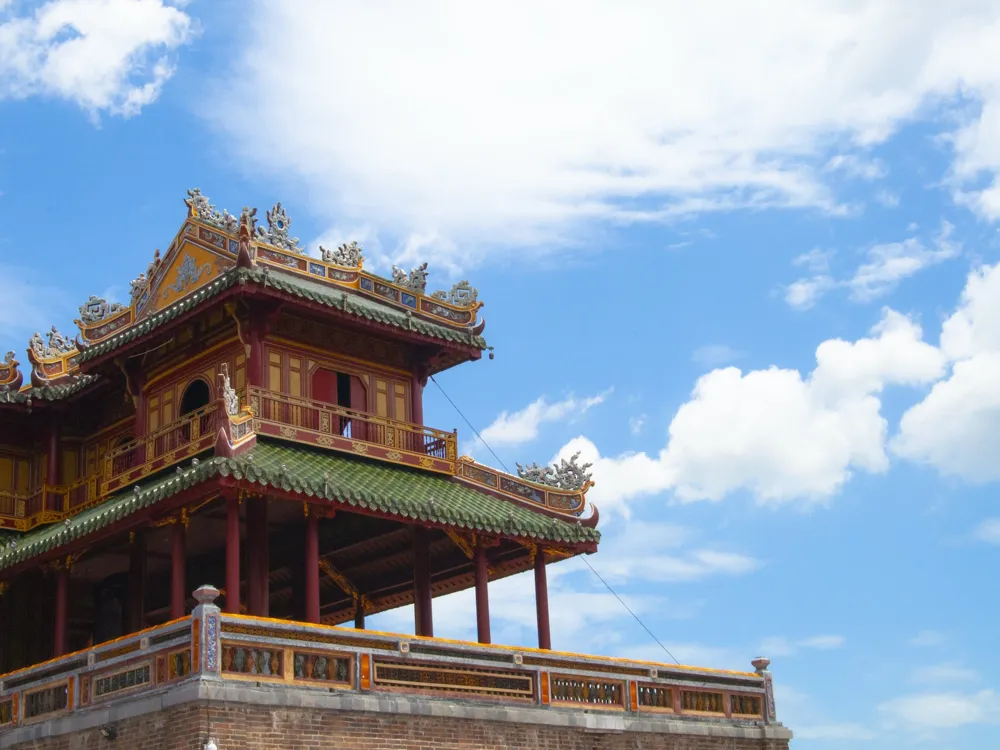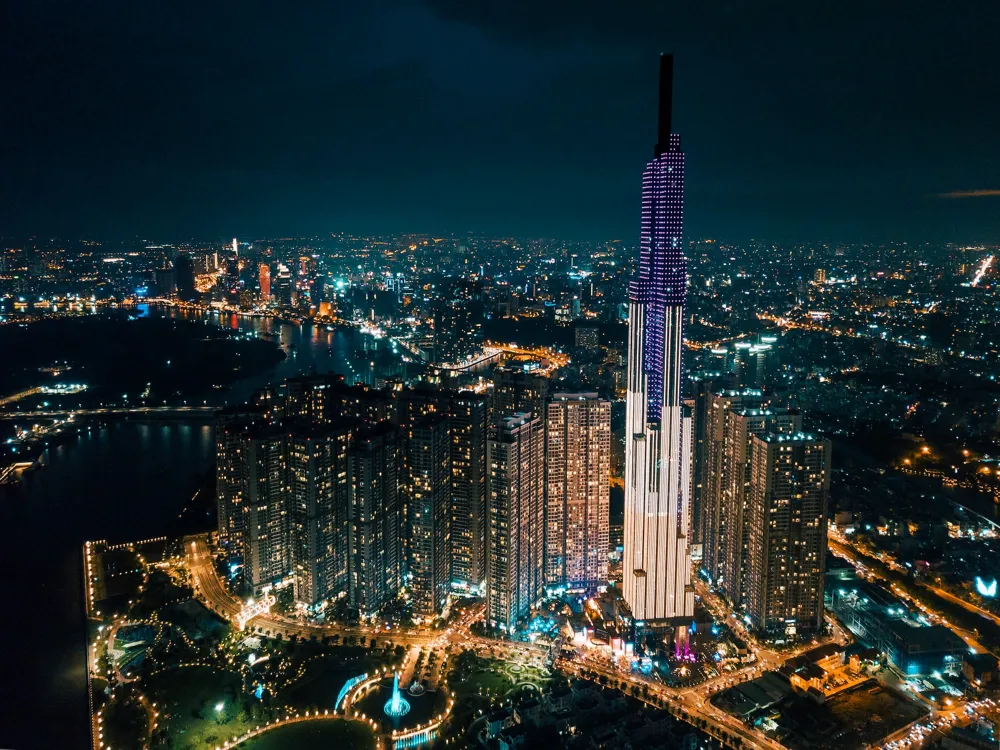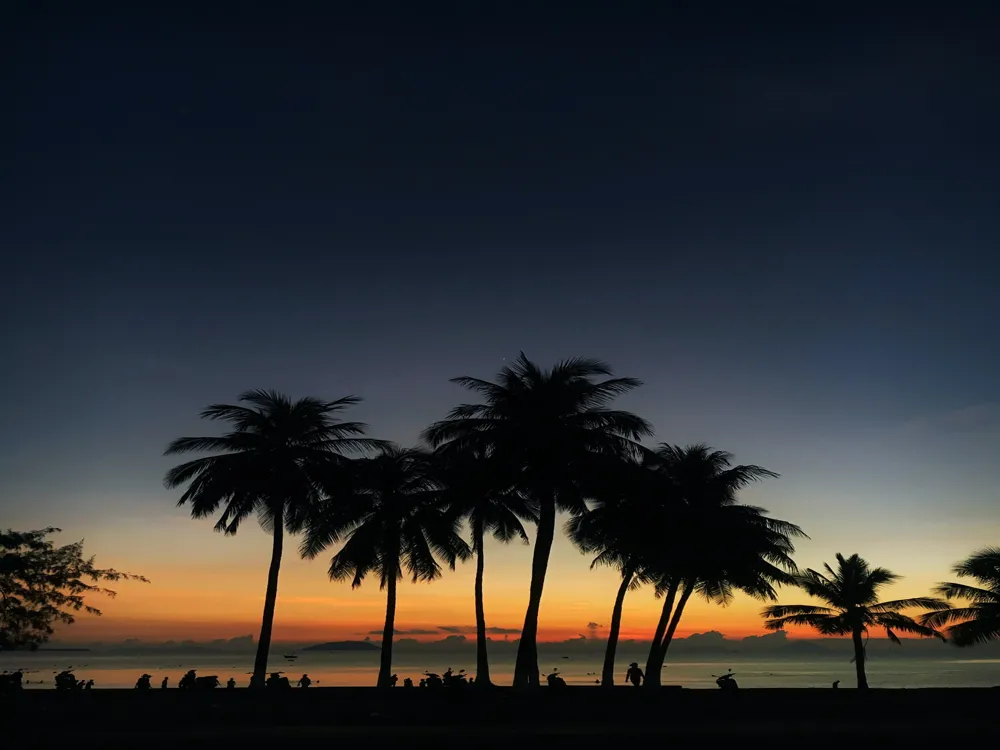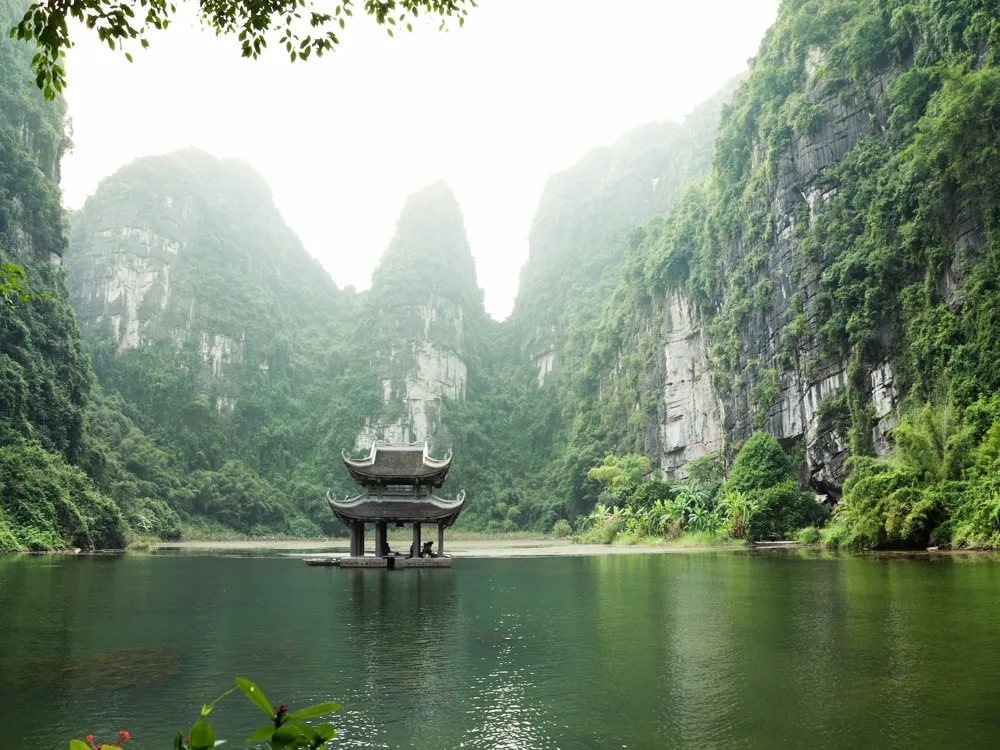Halong Bay, a UNESCO World Heritage Site located in the Quang Ninh Province of Vietnam, is an awe-inspiring collection of limestone karsts and isles spread over an area of about 1,500 square kilometers. This magnificent natural wonder is known for its emerald waters and thousands of towering limestone islands topped with rainforests. The name 'Halong' translates to 'where the dragon descends into the sea' and local legend suggests that the islands were formed by a dragon's descent from the mountains. Visitors are mesmerized by the bay's mystical scenery, which is often shrouded in mist, adding a magical feel to the breathtaking views. The area's geology is not only significant for its visual beauty but also for its scientific importance. The bay features a variety of biodiversity, including coral reefs, freshwater swamp forests, dense mangrove forests, and an array of flora and fauna. This rich ecological system has evolved over millions of years, making it a hotbed for researchers and nature enthusiasts alike. The cultural and historical aspects of Halong Bay are equally captivating. The bay has been inhabited for thousands of years, with various archaeological sites revealing the presence of prehistoric humans. Fishing villages floating on the bay, with houses mounted on rafts, present a unique way of life adapted to the maritime setting. This cultural richness complements the natural beauty, creating an all-encompassing experience for visitors. The best way to explore Halong Bay is by boat. Various cruise options range from day trips to multi-day excursions, offering visitors a chance to navigate the waters and explore the caves, grottoes, and islands scattered throughout the bay. Whether it's kayaking through the karsts, swimming in the bay, or simply relaxing on a boat deck, Halong Bay offers a serene escape and an opportunity to connect with nature's majesty. With its mystical landscapes, rich biodiversity, and cultural depth, Halong Bay stands as a testament to nature's artistry and humanity's resilience and adaptability. It's a place where the wonders of the natural world meet the enduring spirit of human culture, offering an unforgettable experience to all who visit. The architecture of Halong Bay is not about man-made structures, but rather the natural architectural marvels created by millions of years of geological evolution. The bay's most notable features are its limestone karsts and isles, which come in various shapes and sizes. These formations were created through a complex process involving sedimentation, tectonic activity, erosion, and sea level changes over millions of years. The result is a surreal landscape that looks like it's been sculpted by the hands of a divine artist. These limestone towers are often hollow, with massive caves and grottoes that present a whole new world to explore. Each cave in Halong Bay has its own unique beauty, with stalactites and stalagmites forming natural sculptures that inspire awe and wonder. The Sung Sot Cave, also known as the Surprise Cave, is one of the largest and most famous caves in Halong Bay, known for its vast chambers and stunning rock formations. The biodiversity of the bay's ecosystems is another aspect of its natural architecture. The limestone karsts are home to various species of birds, reptiles, and mammals. The bay's waters are rich in marine life, including fish, mollusks, and crustaceans, making it an excellent spot for snorkeling and diving. The mangrove forests and coral reefs around the bay further add to its ecological complexity, creating a vibrant underwater landscape that mirrors the beauty seen above the water's surface. The floating villages of Halong Bay are a unique human adaptation to the bay's geography. These water-bound communities have houses, schools, and markets all built on rafts and floats. The architecture of these floating homes is a direct response to the environment, utilizing local materials and knowledge to create a sustainable lifestyle in harmony with the surrounding waters. Overall, the architecture of Halong Bay is a masterpiece of natural forces, showcasing a delicate balance between beauty and resilience. The bay serves as a living museum of geological history, offering insights into the earth's past and a glimpse of its ever-changing nature. For architects, geologists, and nature lovers, Halong Bay is a source of endless inspiration and a reminder of the incredible capabilities of our natural world. The ideal time to visit Halong Bay is from October to April when the weather is cooler and less humid. During these months, the sky is clear, offering the best views of the bay's stunning landscapes. Selecting the right cruise is crucial for your Halong Bay experience. Consider the duration, route, and amenities offered. Luxury cruises provide a more comfortable experience, while budget options cater to those looking for an economical trip. Bring lightweight clothing, swimwear, sunscreen, and insect repellent. Also, don't forget to pack a camera to capture the bay's breathtaking scenery. It's important to respect the natural environment of Halong Bay. Avoid littering and participate in eco-friendly activities to help preserve the bay's natural beauty. Take the opportunity to kayak, visit the floating villages, and explore the caves. Engaging in these activities offers a more immersive experience of Halong Bay's unique landscape and culture. Halong Bay is accessible from Hanoi, the capital city of Vietnam, which is about 170 kilometers away. The most common way to reach Halong Bay is by road, which takes about 3 to 4 hours. Tourists can opt for a shuttle bus, private car, or even a seaplane for a quicker and more scenic route. The bay is also accessible by train, which connects Hanoi to nearby cities, from where you can take a short drive to Halong Bay.Overview of Halong Bay
Architecture of Halong Bay
Tips When Visiting Halong Bay
Best Time to Visit
Choosing a Cruise
Packing Essentials
Respect the Environment
Exploring Beyond the Boat
How To Reach Halong Bay
Dau Be Island
Halong Bay
₹ 15,260 onwards
View halong-bay Packages
Halong-bay Travel Packages
View All Packages For Halong-bay
Top Hotel Collections for Halong-bay

Private Pool

Luxury Hotels

5-Star Hotels

Pet Friendly
Top Hotels Near Halong-bay
Other Top Ranking Places In Halong-bay
View All Places To Visit In halong-bay
View halong-bay Packages
Halong-bay Travel Packages
View All Packages For Halong-bay
Top Hotel Collections for Halong-bay

Private Pool

Luxury Hotels

5-Star Hotels

Pet Friendly











